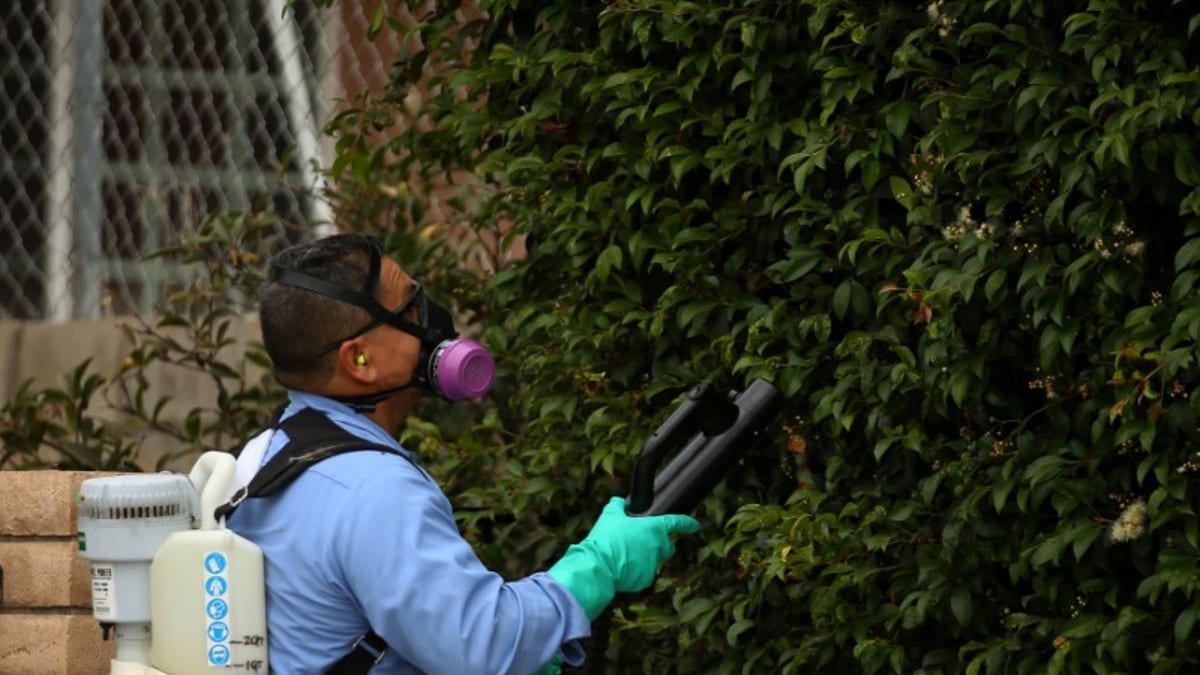
A county vector control member hand-sprays a neighborhood for adult Aedes mosquitoes after a travel-related case of Zika was confirmed in this area of San Diego (Copyright Reuters 2016)
WASHINGTON – U.S. health officials outlined on Tuesday how they planned to divide up $1.1 billion in funds approved by Congress to fight the Zika virus, including repaying $44.25 million they were forced to borrow from a fund allocated for other emergencies.
The funds were borrowed from the Public Health Emergency Preparedness cooperative, which helps state and local public health departments develop response plans to emergencies, while Congress battled over whether to supply the funds.
President Barack Obama in February requested $1.9 billion in emergency Zika funding. Congress approved $1.1 billion in September after months of political bickering.
On a conference call with reporters, health officials said $394 million would go to the U.S. Centers for Disease Control and Prevention, $152 million to the National Institutes of Health and $387 million for the Public Health and Social Services Emergency Fund, which supports the nation's ability to respond to public health emergencies.
A further $40 million is aimed at expanding primary healthcare services in Puerto Rico and other U.S. territories, and $20 million for projects of national and regional significance in those areas.
Puerto Rico has been particularly hard hit by Zika, a mosquito-borne virus that has been linked with a rare birth defect known as microcephaly. The virus has spread to almost 60 countries and territories since the current outbreak was identified last year in Brazil.
As of Oct. 12, more than 29,000 cases of Zika infection had been reported in the United States and territories. Of those, more than 2,600 cases are in pregnant women. Nearly 26,000 of those cases are in Puerto Rico and other U.S. territories.
The government will be allocating funds, based on a competitive process, to support Zika virus surveillance and other programs. The funds will also be used to expand mosquito control, continue vaccine development and begin studies on the effect of Zika on babies born to infected mothers.